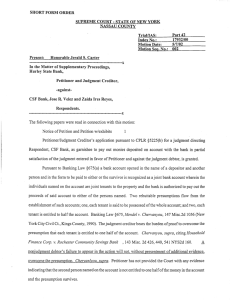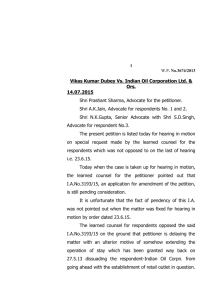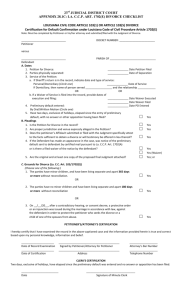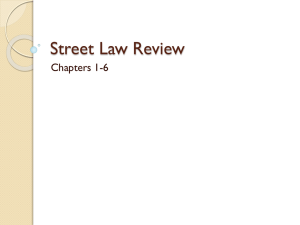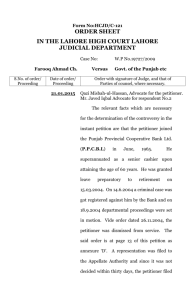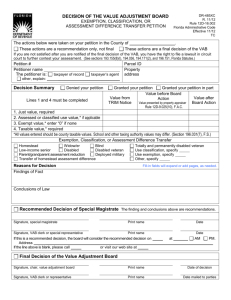PDF - Texas Court Help
advertisement
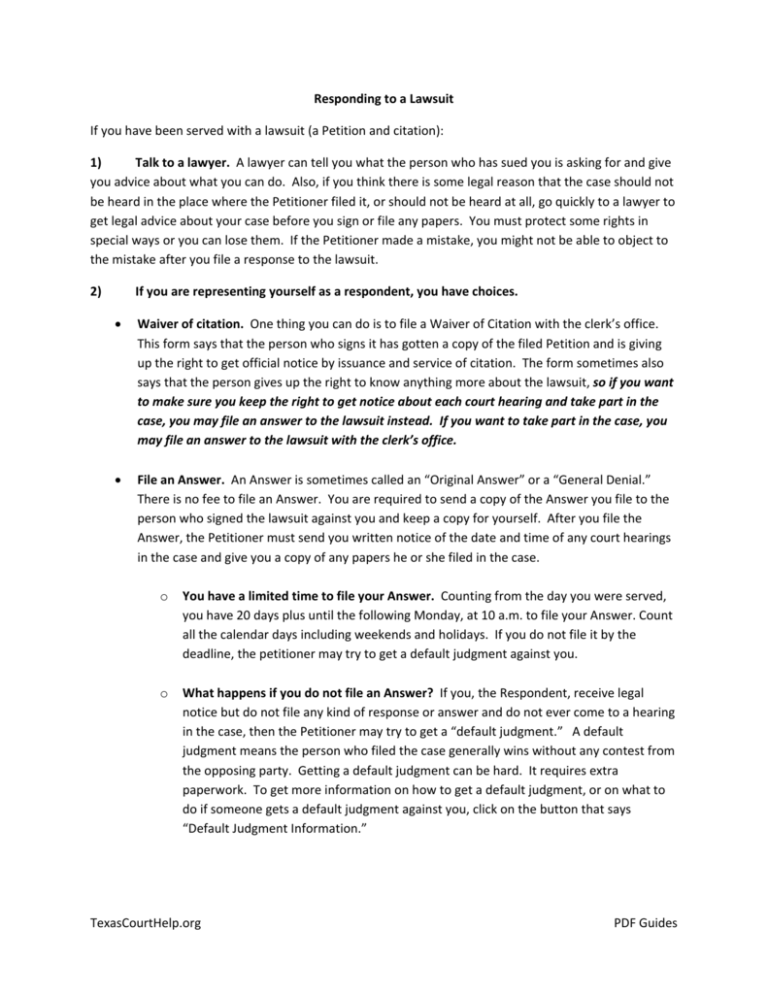
Responding to a Lawsuit If you have been served with a lawsuit (a Petition and citation): 1) Talk to a lawyer. A lawyer can tell you what the person who has sued you is asking for and give you advice about what you can do. Also, if you think there is some legal reason that the case should not be heard in the place where the Petitioner filed it, or should not be heard at all, go quickly to a lawyer to get legal advice about your case before you sign or file any papers. You must protect some rights in special ways or you can lose them. If the Petitioner made a mistake, you might not be able to object to the mistake after you file a response to the lawsuit. 2) If you are representing yourself as a respondent, you have choices. Waiver of citation. One thing you can do is to file a Waiver of Citation with the clerk’s office. This form says that the person who signs it has gotten a copy of the filed Petition and is giving up the right to get official notice by issuance and service of citation. The form sometimes also says that the person gives up the right to know anything more about the lawsuit, so if you want to make sure you keep the right to get notice about each court hearing and take part in the case, you may file an answer to the lawsuit instead. If you want to take part in the case, you may file an answer to the lawsuit with the clerk’s office. File an Answer. An Answer is sometimes called an “Original Answer” or a “General Denial.” There is no fee to file an Answer. You are required to send a copy of the Answer you file to the person who signed the lawsuit against you and keep a copy for yourself. After you file the Answer, the Petitioner must send you written notice of the date and time of any court hearings in the case and give you a copy of any papers he or she filed in the case. o You have a limited time to file your Answer. Counting from the day you were served, you have 20 days plus until the following Monday, at 10 a.m. to file your Answer. Count all the calendar days including weekends and holidays. If you do not file it by the deadline, the petitioner may try to get a default judgment against you. o What happens if you do not file an Answer? If you, the Respondent, receive legal notice but do not file any kind of response or answer and do not ever come to a hearing in the case, then the Petitioner may try to get a “default judgment.” A default judgment means the person who filed the case generally wins without any contest from the opposing party. Getting a default judgment can be hard. It requires extra paperwork. To get more information on how to get a default judgment, or on what to do if someone gets a default judgment against you, click on the button that says “Default Judgment Information.” TexasCourtHelp.org PDF Guides o What is in the Answer? An Answer usually has a general denial, which is a statement asking the court to make the Petitioner prove each and every part of his or her case. The Answer may also have specific defenses to some claims. Forms. You can find forms for different kinds of Answers and possible defenses in a law library, the State Law Library, a public library, or on TexasLawHelp.org. You May File a Counter‐Petition if you want to make your own claims against the Petitioner. The Answer by itself does not make claims against the Petitioner. If you want to make your own claims against the Petitioner or Plaintiff and have the court award you something, you must file a “Counter‐Petition.” o While there is no fee to file an answer, there will be a filing fee if you file a Counter‐ Petition unless you file an Affidavit of Indigency and, if the Affidavit is challenged, the judge says you do not have to pay. o If you want to file a Counter‐Petition, you should ask a lawyer to help you. Serve on all other parties. Whether you file an Answer, a Counter‐Petition or any other paper in your case, you must give a copy of each paper to each party in the case. This is called “service.” o How to serve papers. To serve papers such as an Answer after the case is filed, you may send them by certified mail, fax, or hand delivery. o Get a receipt if you hand deliver. If you hand deliver the papers, you should get a receipt so you can prove later on that the person got them. o How to serve if the party has a lawyer. If the party is represented by a lawyer, you o should serve the lawyer. If the party does not have a lawyer, you may serve the party. TexasCourtHelp.org PDF Guides


